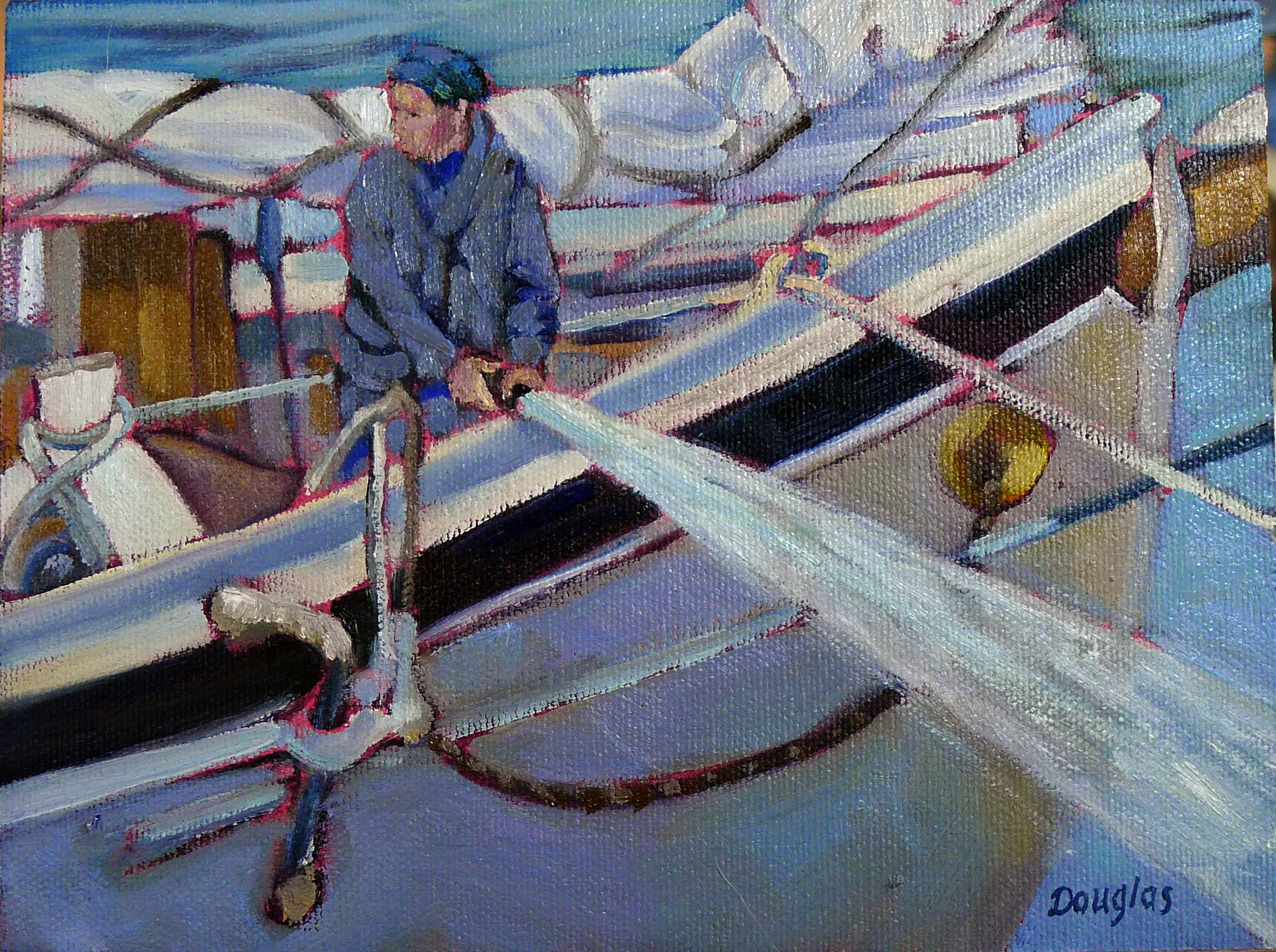
Canadian-American mystery writer Charlotte MacLeod coined something she called, ‘treading-water syndrome’. This was, “panic at being out of one’s depth. Fear that, if a case did not quickly yield up its secrets, it would remain forever impenetrable.” The character who said that was a middle-age college professor. By putting those words in his experienced mouth, MacLeod was saying that it happens to us all.
That’s just what happened to me at my first professional plein air event. I was slopping solvent around my underpainting, which made everything dark and muddy. Then I tried to use white to lighten that layer. In fact, I was pretty much breaking every painting rule I’d ever learned. Eventually, a friend came over and brought me up sharp: “Carol, stop this. You know how to paint.” I took a deep breath, wiped out the canvas, and painted the painting properly.
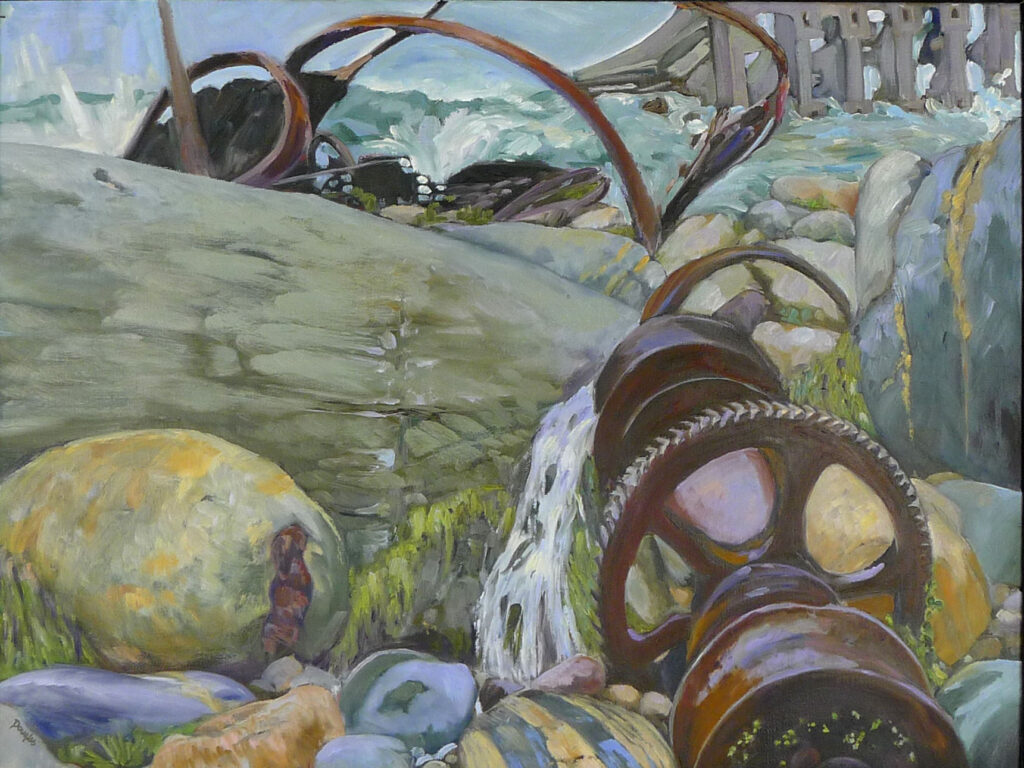
My friend Brad Marshall called what I was doing ‘flailing around.’ It’s a good description of one way in which we temporarily take leave of our senses. But it’s not the only way. There’s also:
- Creative block: you suddenly have no ideas at all, or if something occurs to you, it doesn’t seem worth pursuing;
- Obsessing over details: I’ve wrecked some perfectly wonderful paintings doing this;
- Avoidance or procrastination;
- Negative self-talk;
- Imposter syndrome: “Why did they let me in when there’s so many great painters here?” Bobbi Heath can attest to how many times she’s had to talk me off this cliff;
- Emotional and physical distress: in moments of stress, I’ve learned to look and sound calm, but my gut always betrays me;
- Seeking external validation: That’s not necessarily a bad thing, but it requires that there’s someone around who’s kind-hearted and intelligent enough to give you the right nudge.
First principles
I just heard a story about a very competent musician who couldn’t make it in music. His highs were too high; his lows too low. He essentially never found a way to manage his panic.
One way to get over treading-water syndrome is to get older; you’re less inclined to panic in general. That’s not much comfort to younger people. And there are still times when everyone feels like they’ve lost control. How, then, do you get your ship righted with the least amount of psychic pain?
It helps me to have a plan. I approach painting the same way each time, and if I’m feeling jittery, I slow down on the value drawing until my mind submits. I teach every workshop from a syllabus. That’s primarily so I know I’ll cover the important stuff. However, when something unexpected happens, I can take a deep breath, return to my notes and keep going.
A plan is just an external support to our cognitive flexibility and self-monitoring. You can’t beat it.
Eensy weensy bites
As you can imagine, there’s rather a backlog here after I’ve been gone so long. I’m pretty disciplined about studio work before housework, but some of these domestic tasks haven’t been done since October. If I try to tackle everything at once, I’m just going back to bed until after the holidays. Instead, I’m going to ignore the big picture and tackle one small thing at a time. It’s my best strategy to avoid total paralysis.
Reserve your spot now for a workshop in 2025:
- Advanced Plein Air Painting, Rockport, ME, July 7-11, 2025.
- Sea and Sky at Acadia National Park, August 3-8, 2025.
- Find Your Authentic Voice in Plein Air, Berkshires, MA, August 11-15, 2025.
- Immersive In-Person Fall Workshop, Rockport, ME, October 6-10, 2025.
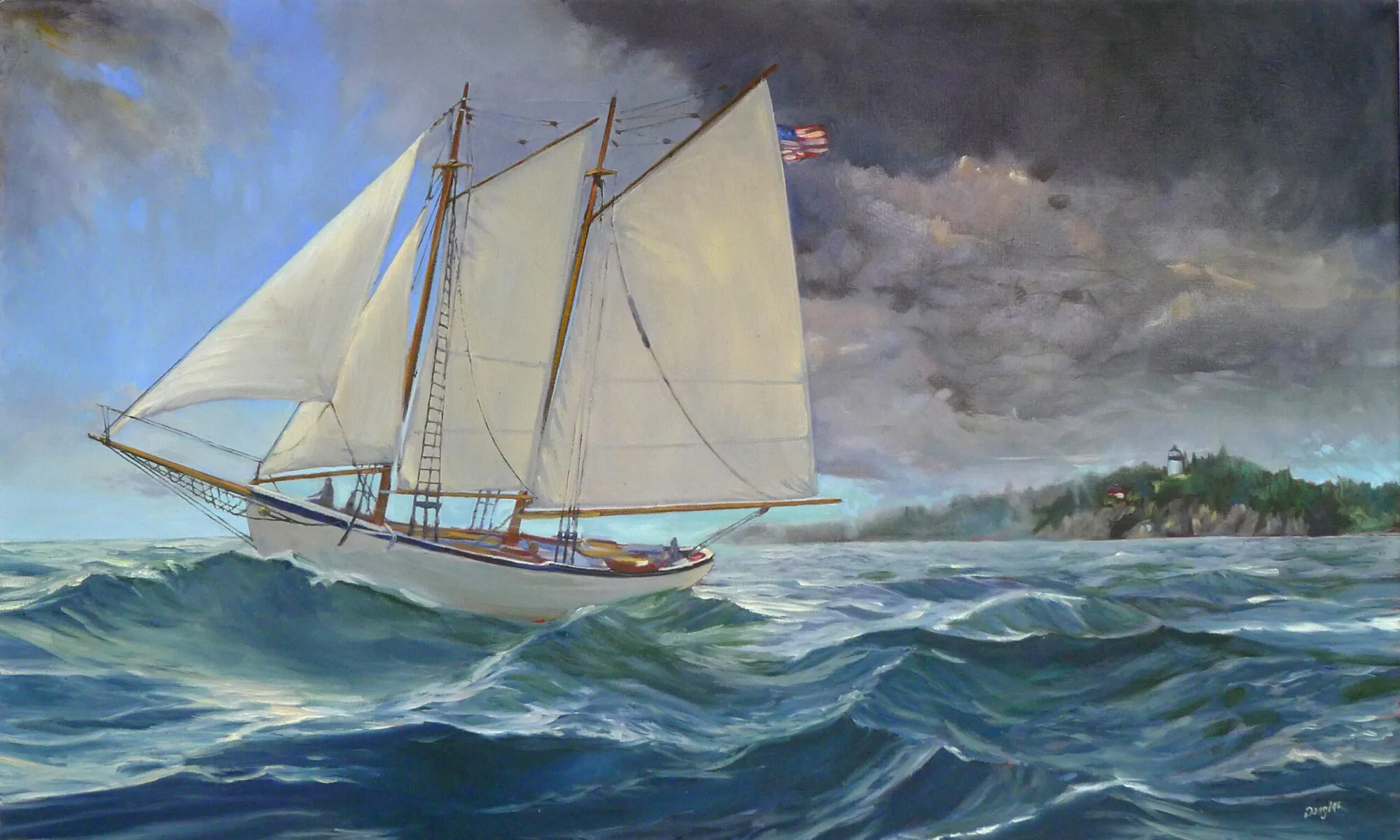
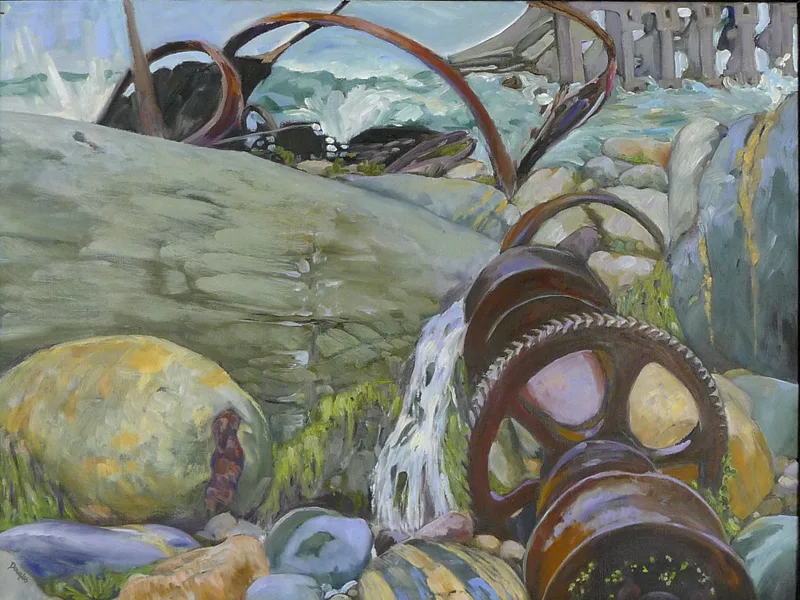
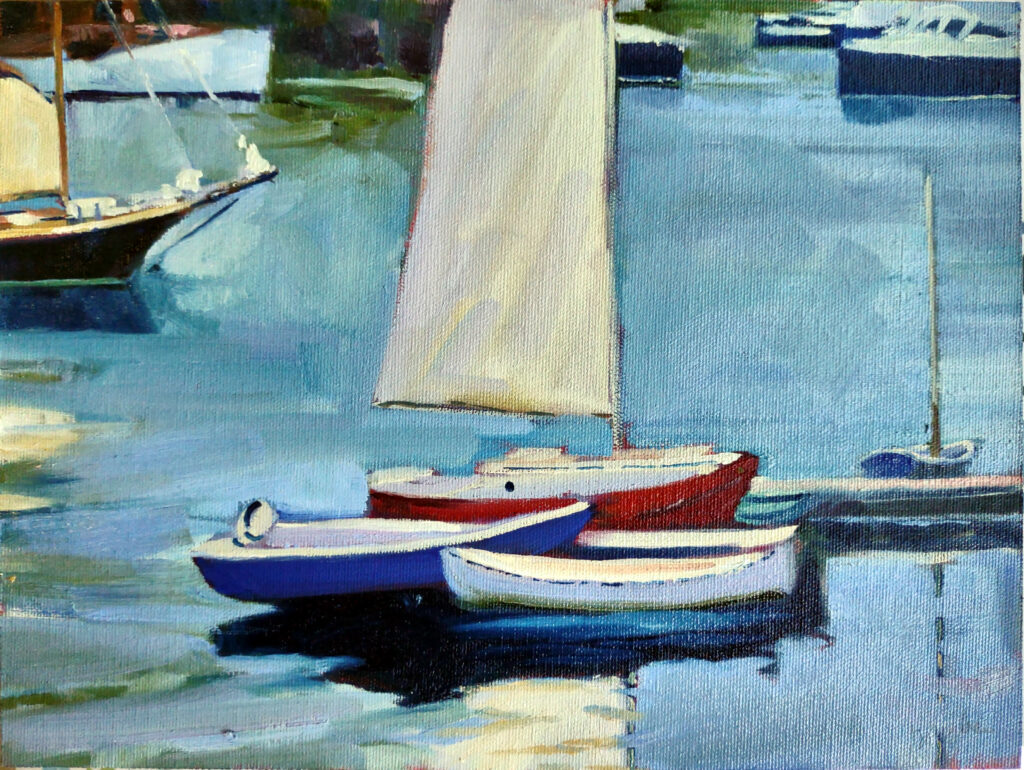
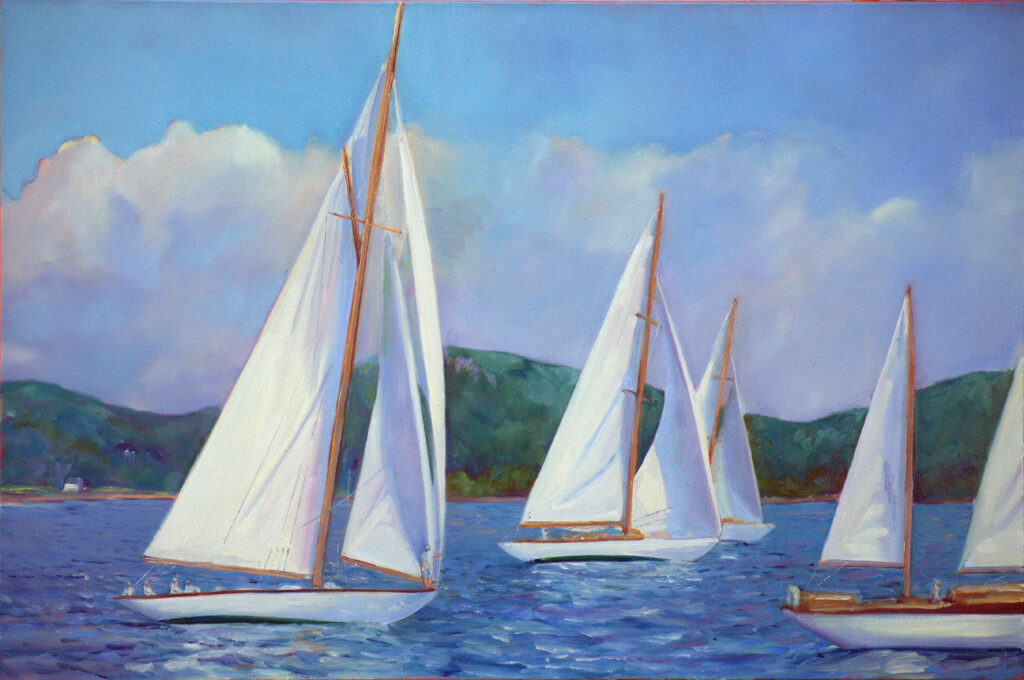
“Seeking external validation: That’s not necessarily a bad thing, but it requires that there’s someone around who’s kind-hearted and intelligent enough to give you the right nudge.” That’s who you are. I found during plein air summer painting I would often feel lost. You’d give a gentle nudge and off I would go. So appreciate that about you.
That’s the greatest validation a teacher can have. Thank you.